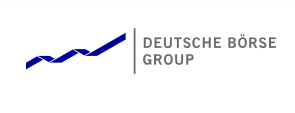“Strengthening financial knowledge at the point of sale”
BaFinJournal: Mr Bock, why does financial education matter from BaFin's viewpoint?
Christian Bock: In an increasingly complex world, it is vital to have financial literacy competence –that’s because consumers need financial knowledge for almost every transaction they carry out online. Take, for example, the various ways in which payments can be made. And then there are high-risk investment products, such as crypto assets, that require competence. A growing number of investors also want to invest in sustainable investments, which raises the risk of greenwashing. We want to enable investors to make financial decisions on the basis of sound information. By strengthening their literacy, they can profit from the transparency achieved through legislation. Our job as financial supervisor is to check that the providers go by the rules and ensure that consumers are not led astray.
War, inflation and the fear of a banking crisis: the current environment is giving rise to great uncertainty among consumers. What's BaFin's line of approach here?
Financial education helps consumers to make better risk assessments and contributes towards bolstering their trust in financial markets. We want to strengthen their financial knowledge at the point of sale and provide them with information about financial products. These include loans, insurance and investment products. To achieve this goal, we give consumers access to a large number of resources on our website, such as our consumer protection podcast, videos on property financing, for example, or articles and brochures, some of which are also written and published in simple language. We continuously add to our range of offerings and take account of current developments. A recent example is the topic of partial home reversion, a relatively new product. Companies are currently marketing this product to consumers on an increasing scale, particularly to older homeowners. The assistance we provide here includes check lists and example calculations. On the whole, there is brisk demand for sound information on financial topics – as clearly evidenced once again at BaFin’s stand at the trade fair for the education sector didacta in early March.
Although there are already a large number of resources to promote financial education, the German government has decided to launch a further initiative. What additional benefits will this initiative offer?
Yes, that’s true, multiple offerings can be found from a wide range of players. What’s missing is a common strategy which makes clear to all parties involved where the road is heading and spells out who is responsible for handling which tasks and delivering which contents. We must all pull together. That’s exactly what is to happen now with this initiative. A central platform is to be set up, a “one-stop shop” for bundling quality-assured financial education offerings. What’s more, a national financial education strategy is to be developed in a broad-based participation process, the objective of which is to identify needs and make recommendations. Finally, research into financial education is to be strengthened. Another crucial factor in my opinion is that financial education is the primary responsibility of independent and neutral institutions. Interest groups should not be allowed to take a leading role here.
This article reflects the situation at the time of publication and will not be updated subsequently.























































First, please LoginComment After ~